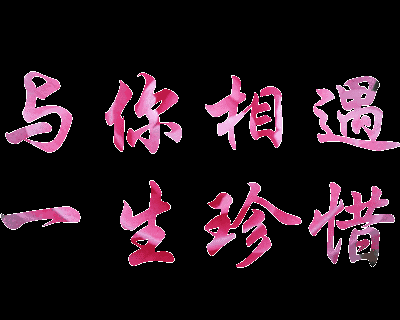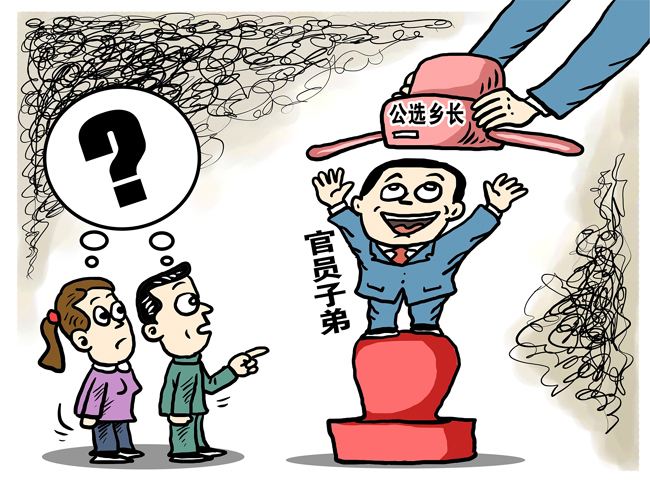“撒娇”(sājiāo),动词,以幼稚的方式行事 ,像个被宠坏的孩子, 撅嘴(来自词库)。这个词的直接定义对非中国人来说并不难理解,但这个词难以捉摸的本质源于非英语国家的人无法理解为什么中国男人喜欢他们的女朋友这样做。
我认为文化差异部分源于这样一个事实,在西方,典型的理想女性通常被描述为成熟、性感和优雅。在中国,很多直男喜欢天真烂漫的女人。

CC Huang, HSK 6 Certified
Answered Jul 22, 2013
撒娇 (sājiāo) verb act in a childish way, act like a spoiled child, pout (from nciku).
The direct definition of this word is not too difficult for non-Chinese to understand, but the elusive nature of the term stems from non-native speakers being unable to understand why Chinese guys enjoy it when their girlfriends do it.
I think the cultural difference is partly rooted in the fact that, in the West, the typical desirable female is often depicated to be mature, sexy, and refined. In China, many straight men are attracted to women who are more innocent and childlike.
In some respects, I totally agree with Brendan O'Kane's answer here about how human experience can be similar despite dissimilarities in language, but I think 撒娇 is quite indicative of how significant differences in cultural preferences or trends can shape important parts of human experience (such as romance) or lead to cultural misunderstandings (have been with many a Western friend who is appalled at public displays of 撒娇 and subsequent comments like "Why is she acting like a 5-year old?").
Edit: A friend requested additional explanation of my point and I don't think I intended for this to be such an analytical post, but I thought of some additional points during my run.
When I say that 撒娇 is indicative of cultural differences, I more precisely mean that something that is considered positive or attractive in one culture might be completely off-putting in another. My favorite Chinese teacher once told me a story of Confucius and his students having a discussion. Confucius poses a difficult, incisive question. The first student to raise his hand and answer the question is considered over-eager and a bit of an idiot, and of course his answer is also mediocre and not to the point. The second student to volunteer his thoughts is also branded intellectually insufficient. This continues until only one student has not spoken. This student speaks softly, slowly, but deliberately and provides a completely illuminating response to Confucius' question.
What I think this story shows is similar to why 撒娇 is such an interesting phenomenon - Chinese culture has always placed an emphasis on patience and humility, whereas this is not always the case in Western culture - in many stories I've read from the West, the first to respond to a challenge is risk-loving and a bit crude, but her boldness to act is usually painted with admiration.
My friend asked if my point is that "language is shaped by culture" - and I think my point is more descriptive than normative or prescriptive: Language often symbolizes important cultural values and it is worthwhile to understand why actions/characteristics one culture sees as appealing could be seen as the opposite in another culture. Being both Chinese and American, I think this is also the reason I am quite relativist in my preferences and beliefs. I often witness misunderstandings in conversations where both Chinese and Americans are involved due to this lack of awareness about values that are somewhat in opposition.
“撒娇”(sājiāo),动词,以幼稚的方式行事 ,像个被宠坏的孩子, 撅嘴(来自词库)。
这个词的直接定义对非中国人来说并不难理解,但这个词难以捉摸的本质源于非英语国家的人无法理解为什么中国男人喜欢他们的女朋友这样做。
我认为文化差异部分源于这样一个事实,在西方,典型的理想女性通常被描述为成熟、性感和优雅。在中国,很多直男喜欢天真烂漫的女人。
在某些方面,我完全同意Brendan O'Kane's答案,尽管语言不同,人类的经验是多么的相似。但我认为撒娇很象征文化偏好的显著差异或趋势如何塑造人类经验的重要组成部分(如浪漫)或导致文化误解(在许多公共场所的西方朋友震惊撒娇和随后的评论像“为什么她表现得像一个5岁的小孩吗?”)。
编辑:一个朋友要求我对我的观点做进一步的解释,我不认为我打算在这篇文章中做这样的分析,但我在跑步过程中想到了一些额外的观点。
当我说撒娇文化差异的象征,我更想表达说的是,在一种文化中被认为是积极或有吸引力的东西放进另一种文化 可能是完全令人厌恶的。我最喜欢的中国老师曾经给我讲过一个关于孔子和他的学生讨论问题的故事。孔子提出了一个棘手而尖锐的问题。第一个举手回答问题的学生被认为过于急切,有点白痴,当然他的回答也很平庸,没有切题。第二个主动提出自己想法的学生也被打上了智力不足的烙印。这种情况一直持续到只有一个学生没有说话为止。这个学生说话轻柔,语速缓慢,但很刻意,对孔子的问题给出了一个完全有启发性的回答。
我认为这个故事显示类似于为什么“撒娇”是一个有趣的现象——中国文化一直强调耐心和谦逊,在西方文化中,情况并不总是如此-在我从西方读过的许多故事中,第一个回应挑战的是喜欢冒险、有点粗俗的人,但她的大胆行动通常被描绘成钦佩。
我的朋友问我的观点是不是“语言是由文化塑造的”——我认为我的观点更具有描述性而非规范性或规范性:语言通常象征着重要的文化价值,理解为什么一种文化认为有吸引力的行为/特征在另一种文化中被视为是相反的是值得的。作为一个中国人和美国人,我认为这也是我在我的喜好和信仰上相对的原因。我经常看到中美两国在对话中出现误解,因为他们对对立的价值观缺乏认识。
Brendan O'Kane, non-native but reasonably good speaker of Mandarin.
Answered Jun 15, 2012
So there's no word for 缘分 in English. So what? It's not as if English lacks the concept that some people were "meant to be together;" we just express it differently. English-speaking countries may not have a single lexical item that maps exactly to 孝顺, but when we talk about someone being "a loving child" (or "a dutiful child" or a "caring child," all of which I would argue are slightly different in meaning) we're covering some of the same territory. 辛苦 -- said as a term of gratitude/admiration/encouragement -- really doesn't have any direct equivalent in English that I'm aware of, but then again, I am not aware of any word in Mandarin that maps neatly to English "nice," and 我 doesn't behave quite like English "I/me," and don't even get me started on Chinese translations for "logic," "nostalgia," and "humor," so let's call it even.
The thing is that words are mostly not particularly interesting or revealing when it comes to the differences between languages. One might just as easily say that "Standard English" doesn't have a word for "to haver" (a dialect word meaning "to babble drunkenly"), but it's not as if Scots have got a fundamentally different worldview, or as if we can't talk about the concept in standard, non-dialect English. The fact that a term in Language A may not map 100% to a term in Language B is not particularly interesting or surprising -- it happens all the time, even with different regionalects of a single language.
Language is a tool created by people to describe and discuss their own experiences, and the human experience is by and large the same for Chinese people as it is for non-Chinese people, even if the ways they conceptualize certain aspects of it (天 vs. 'God,' 单位 vs. 'office,' 道德 vs. 'virtue,' 囧 vs. 'WTF,' etc.) differ.

在英语中没有【缘分】这个词。 那又怎样?并不是说英语中缺少一些人“注定要在一起”的概念,我们只是用不同的方式来表达。英语国家可能没有一个词条完全对应到【孝顺】,但是当我们谈论某人是“一个有爱心的孩子”(或“孝顺的孩子”或“有爱心的孩子”)时,我认为所有这些都有点不同的意思。 【辛苦】作为一种感激/钦佩/鼓励的术语-我并不知道在英语中有任何直接的对等词,但话说回来,我不知道汉语中的任何词都能很好地对应到英语“nice”,而【我】的表现也不像英语“I/Me”,不要让我开始对“逻辑”、“怀旧”和“幽默”的中文翻译,所以让我们扯平吧。
他的观点是,当涉及到语言之间的差异时,词汇大多不是特别有趣或有启发性的。有人可能会很容易地说,“标准英语”没有“haver”这个词(方言词的意思是“胡言乱语”),但这并不是说苏格兰人的世界观完全不同,也不是说我们不能用标准的、非方言的英语来谈论这个概念。事实上,语言A中的一个术语可能不能100%地映射到语言B中的一个术语,这并不是特别有趣或令人惊讶的——它一直都在发生,即使是在同一种语言的不同地区。
语言是人们为描述和讨论自己的经历而创造的一种工具,对于中国人和非中国人来说,人类的经验大体上是一样的,即使他们对某些方面的概念(天vs god,单位vs office,道德vs virtue,囧vs wtf,等等)不同。
Benjamin Ross, Lived in China 3.5 years
Answered Feb 4, 2011

素质 - my best stab has been that it is a combination of education, social class, and manners. It's a common barometer people use to quantify another's worth. It's often translated as "quality," but this misses the point.
素质-我最好的解释是,它是教育、社会阶层和礼仪的综合体。这是人们用来量化他人价值的通用晴雨表。它通常被翻译成“质量”,但这没有抓住重点。
Mark Painter, Speak Chinese, read Chinese history, visit China when I can
Answered Jun 5, 2016
I think in general the most difficult words to translate are references to social or cultural things that don’t have a direct equivalent in American culture. For example, 官二代,could be translated as, children of government officials, but that doesn’t capture all of the nuances of what that would imply to a Chinese person. To fully explain it, I’d need to go into how traditionally working in government was a secure way to make a living, opened up possibilities for corruption, and when China opened up, there were government officials that used this to make themselves rich. That their status as government officials opens up doors, not open to everyone, to their children. In the last few decades these phenomena have lead to a special crop of spoiled brats turned into young adults called, 富二代。Or maybe, if the topic under discussion were potential marriage partners, I’d have to explain why this might make a person an especially good prospect. By the time I have explained all of that, my audience would have lost track of the context where this term originally came up. So, I think there is no adequate direct translation of this kind of term. It works better to restate the sentence it occurs in terms that an English speaker would be familiar with, even if it loses some of the literal meaning. E.g. 他爱上的姑娘嫁给一个富二代。 => The girl he loved chose to marry a rich brat for his money and power.

我认为一般来说,最难翻译的词是指在美国文化中没有直接对等的社会或文化事物。例如,【官二代】,可以翻译成“政府官员的孩子”,但这并没有体现出这对中国人意味着什么。为了充分说明这一点,我需要深入研究传统的政府工作是如何谋生的一种安全方式,为腐败提供了可能,而当中国政府开放时,政府官员利用这一手段来致富。他们作为政府官员的地位为他们的孩子敞开大门,而不是向每个人敞开大门。在过去的几十年里,这些现象导致了一种特殊的被宠坏的小家伙变成了年轻的成年人,或者说,如果讨论的话题是潜在的婚姻伴侣,我必须解释为什么这会使一个人特别好的前景。当我已经解释了所有这些的时候,我的听众可能已经失去了这个词最初出现的背景。所以,我认为没有足够的直接翻译这种术语。最好用英语说话者熟悉的句子来重述它发生的句子,即使它失去了一些字面意义。例如:他所爱的女孩选择嫁给一个有钱的小伙子,因为他的钱和权力。
Mika?l Hardy
Answered Jan 24, 2011
You could probably spend hours on explaining what 关系 [guānxì] means, explaining it as "relationship" doesn't quite cut it. In fact, there are a lot of notions that Chinese people can translate fairly easily as one word in a Chinese cultural context; which can be quite different from the way westerners use the same word.
Another example is 面子 [miànzi], which means "face": a lot of Westerners have a grasp of what "losing face" in a Chinese or Japanese culture means, but who could accurately explain its nuances?

你可能会花上几个小时来解释关系[guanxi]的意思,把它解释为“关系”也并不全面。事实上,在中国文化语境中,人们可以很容易地把一个词翻译成一个词,这与西方人使用同一个词的方式有很大的不同。
另一个例子是【面子】(面子[miànzi]),意思是“面子”:许多西方人对中国或日本文化中“丢脸”的含义有一定的把握,但谁能准确地解释其中的细微差别呢?
Denis Ko
Answered Jul 24, 2014
Trust me,it must be"气"
it can be translated as spirit or power or strength or something.
But none of them is totally correct.
Just native chinese know.

相信我,它一定是“气”-它可以翻译成精神、力量或其他什么东西。但是没有一个是完全正确的。只有中国人知道。
本文来源:https://www.quora.com





